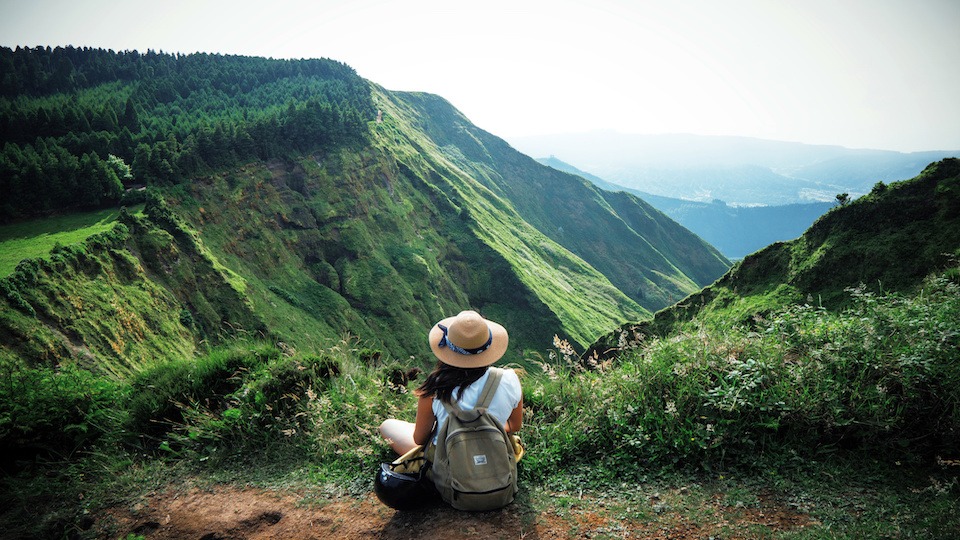Every so often, an article by my UpWellness team here on our blog hits really close to home. Such is the case with this one. Many of you know that I am an avid hiker…my wife and I (and our dog) are out on the trails every morning. We all much prefer exercising rather than getting our cardio at the gym. But just like you might bring a small bag of your essentials for your workout at the gym…there are some essentials that you should always have with you out on the trails as well. Here’s your packing list for your next day hike.
See you out there!
-JL
There is nothing quite as fun or rewarding as hitting the trails for a hike and spending the whole day surrounded by beautiful wilderness. Even if you’re only heading out for the day, it is important to bring a pack with some key essentials that could mean the difference between life and death.
Water
Though this one should be obvious, it is often overlooked. Always, always bring more water than you think you’ll need. Dehydration can lead to severe health issues and can set in quickly, especially on a hot day or a sunny trail with limited shade. Sip at least 1 liter in the morning around breakfast and on the way to the trail and pack at least 2 liters if you plan on hiking all day. Water weight can quickly add up, however; so it may be a good idea to invest in a lightweight filtration system that you can bring with you if the trail has natural water sources.
First-aid supplies
Even if you are going on a simple day hike, you should never step into the backcountry without a basic first aid kit and knowledge of how to use the supplies within. Most outdoor recreation stores offer first aid kits specially designed for hiking and provide all the supplies you need to treat minor injuries that may occur. Customize these premade kits according to individual needs. For instance, if you or someone in your group has any allergies that would require an epi-pen, be sure to include that in your supplies.
Light source
Most day hikes are exactly as the name suggests, during the day. Unfortunately, things don’t always go according to plan, and you may end up staying out longer than you originally intended. Hiking without a light source can quickly turn into a recipe for disaster as it is easy to lose the trail and become disoriented. Pack a headlamp that will allow you to have your hands free or use the flashlight on your phone. Don’t rely on your phone battery lasting without an external charging source, as the flashlight function quickly drains the battery.
Sun protection
Yes, it may look cloudy outside or be a chilly fall day, but the sun can quickly burn you even through a layer of clouds, especially at high elevation. Bring along sunglasses and a mineral sunscreen that you can reapply every few hours. Plus, a baseball cap or wide-brimmed hat can help protect your face and neck from the elements.
Navigation
In the wilderness, not knowing where you are can become a dangerous, potentially deadly situation. Follow premarked trails and bring a backup source of navigation such as a GPS device. A map and a compass are also handy to have around as they can help you if there is no GPS signal or if your device runs out of batteries.
Multitool
A multitool doesn’t take up much space and is an easy thing to toss into your daypack. It can prove useful in a number of tricky situations. Even if you just use it to break into your bag of snacks, you’ll be glad you brought it along.
Food
Speaking of snacks, you should bring along something to eat on every hike over a few miles. Eat a light meal beforehand and pack wholesome, organic protein bars, beef jerky, and dried fruit. These snacks will help replenish those spent carbohydrates and give you fuel to make it back to your car.
Extra clothing
Believe it or not, the weather forecast isn’t always going to be 100% accurate. Shocker, I know. Prepare for the unexpected by bringing along a lightweight rain layer that will also provide some warmth if needed. Of course, your attire will vary depending on the time of year and location, but don’t merely bring what suits the weather at the start of the hike since it could dramatically change as the day goes on.
Emergency blanket
As you put together your day hike pack, you have to set your mind to think about the worst-case scenario. If all else fails and you are forced to spend the night outside, you don’t want to be left without some sort of shelter to protect you from the elements. Bring an emergency blanket or a bivy to help retain your body heat through the night.
What are your day hike essentials? Let us know in the comments below!
-The UpWellness Team









